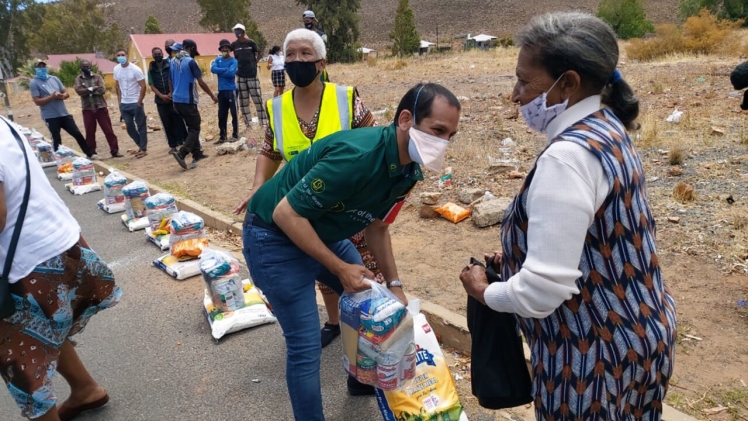The outbreak of the COVID-19 pandemic presented unprecedented challenges to South Africa, akin to the global experience. Beyond immediate public health concerns, the pandemic’s impact extended to severe economic and social consequences. In response, the South African government initiated a series of social support measures aimed at mitigating the hardships faced by vulnerable populations.
This article provides a comprehensive exploration of South Africa’s COVID-19 social support initiatives, emphasizing their significance, outcomes, and associated challenges.
Overview of the COVID-19 Pandemic in South Africa
The COVID-19 pandemic significantly affected South Africa, characterized by:
1) Early Cases and Responses
In early 2020, South Africa reported its first COVID-19 cases, prompting swift government actions to contain the virus’s spread.
2) Progression of the Pandemic
The pandemic’s trajectory evolved over time, posing continuous challenges to public health and the economy.
3) Vulnerable Populations
Notably, informal sector workers, low-income households, and individuals with pre-existing health conditions were particularly vulnerable to the pandemic’s effects.
Social Support Initiatives
South Africa introduced several key social support initiatives in response to the pandemic:
1) The South African Social Relief of Distress (SRD) Grant
The SRD Grant aimed to provide financial assistance to those adversely affected by COVID-19. It featured specific eligibility criteria and an application process, with payments structured accordingly.
2) Unemployment Insurance Fund (UIF) TERS Scheme
Designed to support employees impacted by COVID-19, the UIF TERS Scheme involved specific coverage, and application processes, and encountered challenges during implementation.
3) Food Relief Programs
South Africa distributed food parcels as part of its relief efforts. These programs collaborated with NGOs and community organizations to ensure aid reached even remote and underserved areas.
Temporary Employment Relief Scheme (TERS) for Employers
This initiative assisted employers in making salary payments to employees during the pandemic. Conditions and requirements were in place, and their effectiveness and limitations varied.
Impact and Significance
South Africa’s COVID-19 social support initiatives had several notable impacts:
1) Alleviating Financial Hardship
Case studies highlighted the critical role these initiatives played in reducing poverty and inequality, supporting economic recovery, and alleviating financial hardship for beneficiaries.
2) Maintaining Social Stability
By mitigating social unrest, preventing hunger, and fostering social cohesion, these programs helped maintain social stability during a challenging period.
3) Lessons Learned
These initiatives underscored the importance of strengthening social safety nets, preparing for future crises, and fostering collaboration between the government and civil society.
4) Challenges and Criticisms
Despite their benefits, South Africa’s social support initiatives faced several challenges and criticisms:
Administrative Challenges
Delays in processing applications, difficulties in identifying eligible recipients and logistical hurdles posed significant obstacles.
Inequities in Access
Disparities in access became evident, particularly concerning the digital divide, online applications, reaching rural and marginalized communities, and language barriers.
Fiscal Constraints
Balancing social support with economic stability, addressing the long-term financial burden, and calls for tax and revenue policy reforms presented significant fiscal challenges.
Future Directions
To build a more resilient society and address ongoing challenges, South Africa should consider the following future directions:
Strengthening Social Safety Nets
Expanding existing social grant programs, discussing the potential for universal basic income, and targeting the most vulnerable segments of society are crucial steps.
Addressing Inequality
Focusing on education, skills development, job creation, and improving healthcare access for all can help address systemic inequalities exacerbated by the pandemic.
Collaborative Approaches
Emphasizing public-private partnerships, community-driven solutions, and international cooperation and aid can enhance the effectiveness of future social support initiatives.
Grant Details
| Initiative | Purpose | Eligibility Criteria | Application Process |
| Social Relief of Distress (SRD) Grant | Financial assistance for COVID-19 hardships | Means-tested and unemployed | Online application or WhatsApp |
| Unemployment Insurance Fund (UIF) TERS | Wage support for employees affected by COVID-19 | Employers and employees | Online application |
| Food Relief Programs | Distribution of food parcels | Vulnerable households | Community-based distribution |
| Temporary Employment Relief Scheme (TERS) | Support to employers for salary payments | Registered employers | Online application or email |
*Note: Eligibility criteria and application processes are subject to change based on government policies and guidelines.
Final Words
In this article, we have explored South Africa’s response to the COVID-19 pandemic through a variety of social support initiatives. From the Social Relief of Distress (SRD) Grant to food relief programs and wage support for employees, these efforts have been crucial in mitigating the pandemic’s impact on vulnerable populations.
“SASSA Status Check for R350 SRD grant online. Check application status and change banking details view payment dates for social relief grant.”
While there have been challenges, including administrative hurdles and access inequities, South Africa’s commitment to social support has shown resilience in the face of adversity. The lessons learned from these initiatives can guide future policies and ensure a more equitable and stable society.


